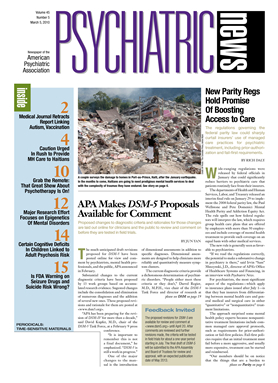During the past several years, some 300 psychoanalysts from the United States, Canada, and Europe have been attempting to export a derivative of psychoanalysis—psychoanalytic psychotherapy—to China.
The group calls itself the China American Psychoanalytic Alliance.
True, China has had some exposure to analysis in the past. For example, a European analyst visited China during the 1920s. During the 1930s, there was a Chinese analyst who trained under American psychiatrist Harry Stack Sullivan, M.D., and taught psychotherapy at Peking Municipal Psychopathic Hospital. And since the 1980s, some Western analysts have lectured about or taught analysis in China. But the alliance appears to be the first group to make an organized, intensive effort to bring psychoanalytic psychotherapy to the world's most populous country.
Further, the bulk of this effort is being conducted with Skype—an Internet-based audio/video service that allows a user in one place to communicate with a Skype user in another place. Since an essential step in learning how to do psychoanalytic psychotherapy is to receive the treatment itself, that is what alliance teachers are using Skype for—to conduct psychoanalytic psychotherapy with Chinese psychiatrists and psychologists who want to learn the technique.
How have alliance members found the experience? Extraordinary in many ways, some of them reported at the 2010 national meeting of the American Psychoanalytic Association in New York City in January.
“Using Skype is a remarkable acoustical experience,” Lana Fishkin, M.D., a Philadelphia analyst and alliance member, remarked. “You're thousands of miles away from a patient, yet his or her voice is so clear. It provides both intimacy and distance.”
Ubaldo Leli, M.D., a New York analyst and vice president of the alliance, agreed: “One patient stopped talking because he noticed a change in my breathing.”
“If a patient reclines on a couch on the other side of the globe, the Skype image is somewhat blurred, but not bad,” Leli continued. If face-to-face, eye-to-eye contact is deflected because of the camera placement, the camera can be moved to improve it, said Ralph Fishkin, M.D., husband of Lana Fishkin, M.D., and also an alliance member.
Because alliance members conduct the therapy in English, “sometimes the therapist must speak very slowly,” he noted. And the type of English a patient speaks must be taken into consideration, he added—for instance, those in Hong Kong tend to speak with British idioms and accent.
The Chinese tend to have a “profound respect for their elders,” Lana Fishkin observed. As a result, one of her patients calls her “professor” even though she is not one, and another does not always understand what she says, but doesn't interrupt her because he doesn't want to be disrespectful. So after each statement she makes, she now asks, “Is that clear?” Then there is the patient she has been treating for two years who has not once broached the subject of sex. “I'm not quite sure what to do about it,” she said. “I'm not quite sure what it means in the Chinese culture.”
Elise Snyder, M.D., a New York analyst and president of the alliance, reported that she has had the opposite experience with some of her Chinese patients. “I have been flooded with sexual details.”
“Actually what I think most of us are experiencing,” Snyder stressed, “is that, yes, there are language differences and there are cultural differences between our Chinese patients and ourselves, but such differences can be overcome. Analysis is, after all, a struggle to become mutually comprehensible.”
But would communication be better if alliance analysts and Chinese patients communicated at least some of the time in person? Ralph Fishkin isn't so sure. When he finally met two of his Skype patients in person, it was interesting, yet in a sense rather disruptive to their Skype communication, he said.
And how about the crucial issue of privacy? Since Skype is supposed to be a technologically secure means of communication, alliance members are not concerned about people eavesdropping on their treatment sessions.
They do worry about something else, however, reported Anna Burton, M.D., a New York analyst and alliance member. The community of Chinese professionals learning psychoanalytic psychotherapy is rather small—several hundred people who meet, study, and socialize together. So if a therapist presents a case and mentions any factual details, other therapists and students in the group may be able to identify the patient under discussion. It is thus essential that participants be extra cautious about presenting and discussing case material at conferences.
However, this problem may dissipate as more Chinese psychiatrists and psychologists learn psychoanalytic psychotherapy from alliance members. In fact, some 100 applicants have signed up for instruction during the coming year.



